Hotels & Accommodations
How Technology Can Help Hotels Reveal the Gap Between Stated and Real Guest Needs |
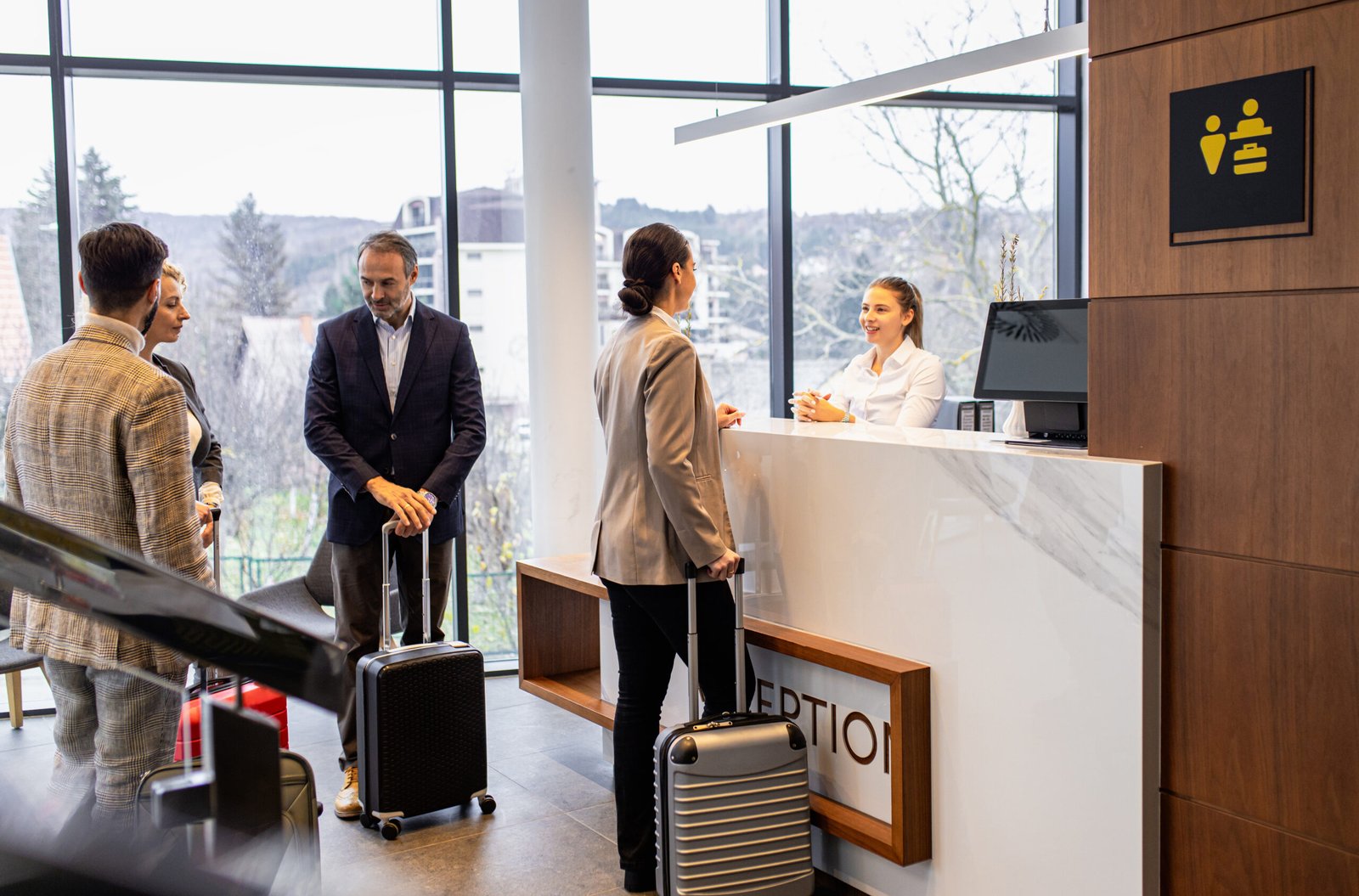
By Tony Howard, co-founder and product owner at Centro – 9.2.2025
The couple at the front desk smiled politely as they checked into your property. “Everything looks lovely,” they assured your staff. Yet three days later, their online review mentioned “disconnected service” and “outdated processes” that left them feeling “just another reservation number.” The truth emerges in the digital aftermath, not during the in-person exchange.
This disconnect represents the new reality of hospitality: what guests verbalize rarely captures what they truly desire. Modern travelers have developed sophisticated expectations shaped by their digital experiences across all aspects of their lives. They’ve been conditioned by the seamless interfaces of rideshare apps, the personalization of streaming services, and the instant gratification of food delivery platforms. Yet when asked directly about their hospitality preferences, they fall back on traditional responses about “clean rooms” and “friendly service.”
The gap between stated preferences and actual expectations has never been wider. Understanding this silent evolution in guest psychology has become the critical differentiator between properties that merely satisfy and those that genuinely delight. Let’s explore what today’s guests truly want but rarely articulate.
The Unspoken Desires of Today’s Digital-Native Guests
Beneath the surface of conventional feedback lies a complex web of unspoken expectations. Today’s guests aren’t necessarily demanding in their direct communications, but their internal standards have been dramatically recalibrated by their digital experiences. The properties struggling most with guest satisfaction are often those that meet all the traditional metrics while missing the invisible shifts in guest psychology.
The modern traveler arrives with a paradoxical mindset: they want high-touch service delivered through low-friction technologies. They desire personalization without invasion of privacy. They crave both efficiency and authentic connection. Understanding these tensions reveals why meeting explicit requests no longer guarantees positive reviews or loyalty.
The Psychological Need for Control Without Effort
When guests open a rideshare app, they experience complete control—tracking their driver’s approach in real-time, knowing the exact fare, and rating the experience afterward. This sense of control has become psychologically embedded in their expectations across all service industries. Yet in hospitality, guests often find themselves in an information vacuum once they’ve made a reservation.
What they won’t explicitly tell you: they experience anxiety when they can’t access information about their stay independently. The property that still requires phone calls for simple requests or that keeps guests wondering about check-in procedures creates friction that translates to stress. This stress isn’t typically vocalized—it simply manifests as a vague sense of dissatisfaction that appears later in reviews.
Properties that recognize this psychological need provide digital touchpoints that put control in guests’ hands. Mobile check-in options, digital concierge services, and property apps aren’t merely technological conveniences—they’re responses to the fundamental human need for autonomy and control. When guests can modify reservations, request services, or access information through their devices, they experience the psychological comfort of agency without having to verbalize this need.
The Desire for Recognition Without Repetition
The frustration is familiar: a guest who has stayed at your property multiple times still being asked the same basic questions upon arrival. While they may smile and answer politely, internally they’re questioning whether their business is truly valued. The psychological impact of needing to repeatedly provide the same information runs deeper than mere inconvenience—it signals to guests that their relationship with your property starts from zero with each visit.
What they won’t explicitly tell you: they expect your systems to remember them in the same way their favorite online retailers do. When Netflix suggests content based on viewing history or when Amazon reminds them of past purchases, these platforms create a sense of continuity that builds loyalty. Guests silently compare these seamless experiences with their hospitality interactions.
Forward-thinking properties are addressing this unspoken need by implementing systems that maintain guest preference profiles across stays. When a returning guest receives their preferred room type without asking, finds their favorite beverage waiting, or is greeted by name by staff they’ve never met, the psychological impact is powerful. The guest feels seen and valued without having to assert their importance.
The Expectation of Anticipatory Service
Perhaps the most significant shift in guest psychology involves the move from reactive to anticipatory service expectations. Traditional hospitality excellence meant responding quickly to stated needs. Today’s guests, however, have been conditioned by predictive algorithms and smart technologies to expect their needs will be anticipated before they’re expressed.
They judge service quality not by how well you respond to requests, but by how rarely they need to make requests at all. When a streaming service automatically plays the next episode or when a smart home adjusts lighting based on time of day, technology is creating expectations of environmental responsiveness that transfer to hospitality settings.
The most successful properties have recognized that true luxury today lies in anticipation. This might manifest as housekeeping scheduled around guest patterns rather than fixed times, digital check-out processes that activate automatically on departure day, or pre-arrival communications that address typical questions before they’re asked. The psychological comfort of having needs met without having to identify or request them creates a subtle but powerful sense of being truly cared for.
The Bridge: Intuitive Engagement Platforms
The properties struggling with the new guest psychology continue to invest in traditional service enhancements while missing the fundamental shift in expectations. They excel at responding to explicit requests but fail to address the implicit ones. Meanwhile, properties thriving in this new landscape recognize that technology serves as the critical bridge between traditional hospitality values and modern guest expectations.
Digital engagement platforms have emerged as the essential connective tissue. These systems allow properties to maintain the human touch that remains central to hospitality while delivering the seamless, anticipatory experiences guests have come to expect but rarely request explicitly. They enable properties to collect and act upon guest preference data, provide self-service options that satisfy the need for control, and create communication channels that feel both personal and efficient.
The key insight is that technology in hospitality isn’t about replacing human connection—it’s about creating the conditions for more meaningful interactions by eliminating friction points that guests have learned not to mention. When digital systems handle routine transactions and information sharing, staff can focus on creating the moments of genuine connection that still differentiate hospitality from other service industries.
The Path Forward: Reading Between the Lines
Understanding the modern guest requires a fundamental shift in how properties gather and interpret feedback. Traditional satisfaction surveys often fail to capture the unspoken expectations that actually drive loyalty and recommendations. Guests rarely articulate that they were disappointed by having to request information that could have been proactively provided, or that they felt anonymous in a process that should have recognized their history with your property.
The most successful hospitality leaders have learned to read behavioral signals rather than relying solely on verbal feedback. They track digital engagement patterns, analyze the types of requests made (and not made), and observe how guests interact with technology touchpoints. These observations reveal insights into true guest satisfaction that direct questions could not expose.
This observational approach requires both sophisticated systems and trained staff who understand the psychology behind guest behaviors. When a guest repeatedly checks a mobile app for information, they’re signaling an unmet need for certainty. When they bypass digital check-in for in-person interaction, they may be expressing a preference for human connection. These behavioral choices speak volumes about individual preferences that guests themselves might struggle to articulate.
Conclusion: Meeting the Unspoken Need
The evolution of guest expectations presents both challenge and opportunity. Properties that continue to design experiences around stated preferences will increasingly find themselves meeting outdated standards. Those that recognize and respond to the unspoken needs of modern travelers will create the sense of being truly understood that drives loyalty in today’s market
The gap between what guests say and what they truly want isn’t a communication failure—it’s a natural consequence of rapid changes in consumer psychology driven by digital experiences across all aspects of life. By approaching this gap with curiosity and empathy rather than frustration, hospitality leaders can transform it into a competitive advantage.
The future belongs to properties that make guests feel known without making them explain themselves, that provide control without requiring effort, and that deliver personalization without compromising privacy. In essence, the most successful hospitality experiences will be those where guests find themselves thinking, “I never had to tell them what I wanted—they just knew.”
Tony Howard is co-founder and product owner at Centro, a digital engagement solution designed to seamlessly connect users with shared resources, services, and building systems. Dedicated to empowering businesses through digital engagement, Tony hosts a weekly video series, Tony Talks, where he dives into the real-world challenges faced by modern teams and shares practical solutions drawn from years of experience.
Are you an industry thought leader with a point of view on hotel technology that you would like to share with our readers? If so, we invite you to review our editorial guidelines and submit your article for publishing consideration.
Related
Hotels & Accommodations
Experts predict zero revenue growth for US hotels in 2025
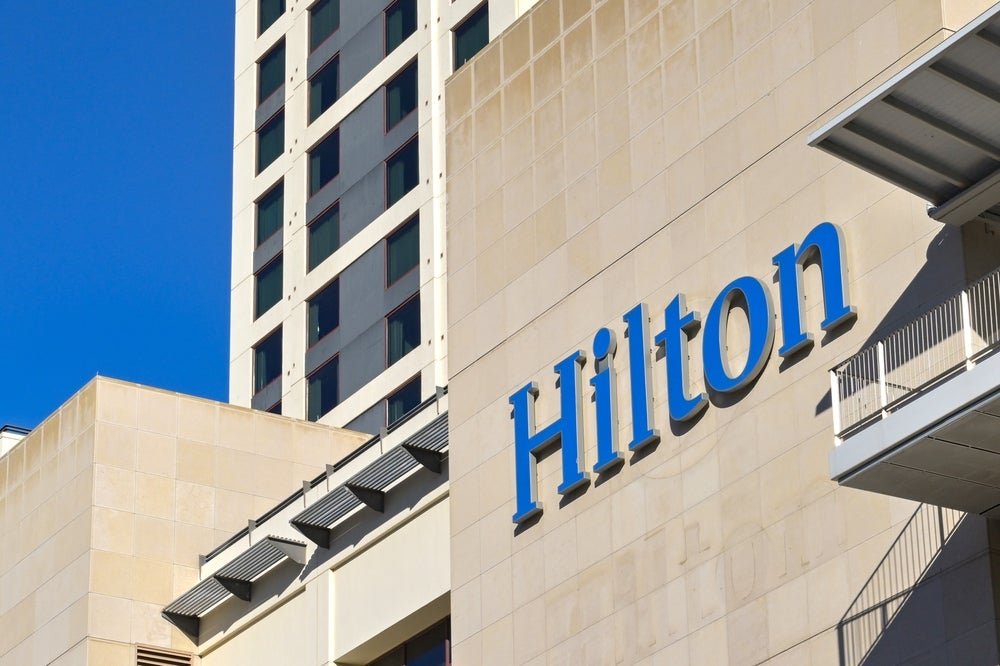
The US hotel industry faces a challenging year ahead, with forecasts indicating zero revenue growth for 2025.
Analysts from CoStar and Tourism Economics have revised their projections, now expecting a slight 0.1% decline in revenue per available room (RevPAR) for the year.
Discover B2B Marketing That Performs
Combine business intelligence and editorial excellence to reach engaged professionals across 36 leading media platforms.
This adjustment reflects a convergence of economic pressures and shifting travel behaviours.
Economic pressures Impacting hotel performance
Several economic factors are contributing to the subdued outlook for the hotel industry. The U.S. economy is projected to grow at a modest rate of 1.5% in 2025, down from previous forecasts of 1.9%.
This slowdown is attributed to persistent inflationary pressures, with the Consumer Price Index (CPI) expected to rise by 2.9% in 2025, impacting consumer spending and travel budgets.
High interest rates continue to affect both consumer and business spending.
While the Federal Reserve’s recent rate cuts may provide some relief, the cumulative effect of elevated borrowing costs over the past year has dampened investment and discretionary spending, including travel.
Shifts in travel demand and consumer behaviour
The hotel industry is witnessing a shift in travel demand, with luxury and upscale properties outperforming their midscale counterparts.
High-income travellers are maintaining their travel habits, opting for premium accommodations, while midscale hotels are experiencing declining demand and narrower profit margins.
Corporate travel, a significant revenue stream for hotels, remains below pre-pandemic levels. The rise of remote work and virtual meetings has reduced the need for business travel, impacting occupancy rates and group bookings.
In Washington, D.C., for instance, the deployment of National Guard troops in August 2025 led to a noticeable decline in tourist activity, including hotel occupancy, as visitors perceived the city as less safe.
Outlook for 2026 and beyond
Looking ahead, the hotel industry anticipates a modest recovery in 2026, with projections indicating a 0.8% increase in RevPAR. This optimism is based on expectations of improved economic conditions, including stronger GDP growth and a stabilisation of inflation rates.
However, the pace of recovery remains uncertain, influenced by factors such as geopolitical events, changes in consumer confidence, and the evolving landscape of travel preferences.
Hotels will need to adapt to these dynamics, focusing on enhancing guest experiences and operational efficiencies to navigate the challenges ahead.
Ultimately, while the U.S. hotel industry faces a challenging 2025 with zero revenue growth projections, strategic adaptations and a focus on high-end market segments may provide avenues for resilience and future growth.
Hotels & Accommodations
Restaurant India News: VITSKAMATS Group Marks Growth Milestone with New Hotel in Bengaluru
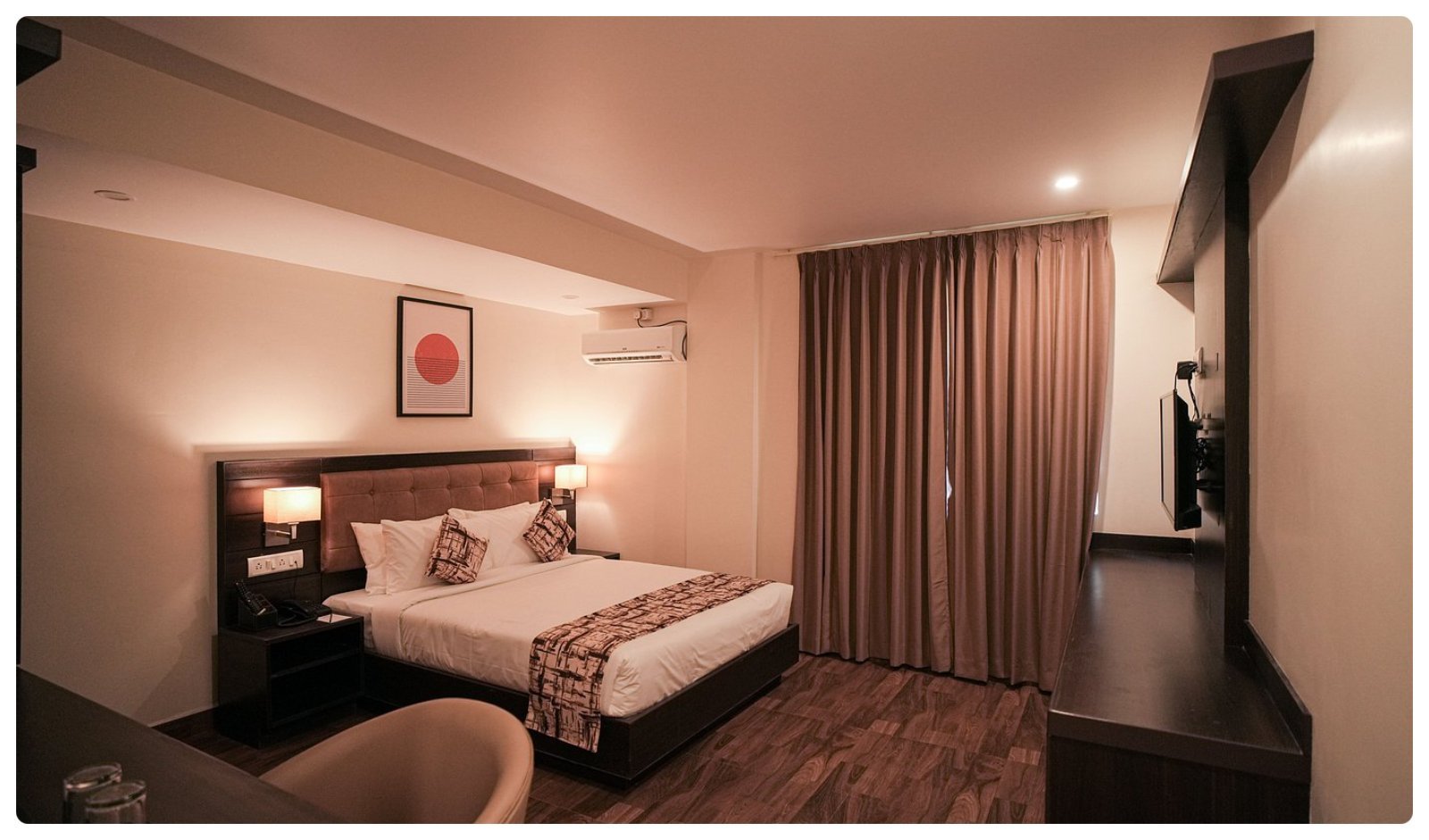
Foo opens in Gourmet Village at Phoenix Palladium, Mumbai. With its bold Pan-Asian flavours and inventive small plates, Foo has evolved from a neighbourhood favourite into one of the city’s most recognisable dining destinations—equally at home hosting business lunches, family dinners, after-work drinks, or lively group celebrations. Its winning formula lies in pairing consistency with creativity, delivering experiences that feel familiar yet never predictable.
The Phoenix Palladium outpost reimagines Foo as Foo 2.0—a playful yet refined take on Asian modernity. Designed by Sarah Sham, the space flows organically, encouraging exploration while balancing pop hues with warm neutrals, sculptural lighting, and layered textures.
With 126 covers, the restaurant offers diverse seating: intimate two-seaters, patterned banquettes, pod-style booths lit with brass-accented lanterns, high tables, and a Private Dining Room. Thoughtful zoning through design and flooring creates distinct moods, from cosy nooks to lively communal spaces.
The new menu features dishes created just for this location, such as Spicy Tropical Salad – lettuce, avocado, yam bean, grapefruit, orange, spicy sesame dressing, Fiery Cottage Cheese Maki – Vegetarian roll with takuan, avocado, sriracha, Spicy Chicken Maki – scallion, cream cheese, fiery Thai sauce, Peking Wontons & Prawns Wontons – zucchini, pok choy, water chestnut in chilli sauce, rolled duck pancakes – with plum, mustard, and chilli oil sauces.
Guests will still find bestsellers like the Truffle Togarashi Black Rice Maki, Spicy Tuna Maki, indulgent dumplings such as Wasabi Truffle Edamame and Sriracha Chicken, big plates like the Foo Yellow Curry and Foo Blue Butter Fried Rice, and the dramatic Mount Foo-ji dessert platter.
Speaking about the launch, brothers Keenan Tham & Ryan Tham, Founders of Pebble Street Hospitality, share “Foo Phoenix Palladium is our vision of what Foo 2.0 looks and feels like. It’s a natural evolution of the brand, more immersive, more expressive, and designed for a new generation of diners. We’ve kept everything people love about Foo, but reimagined the experience to feel bolder, more dynamic, and unmistakably fresh.”
The bar debuts an exclusive cocktail menu for Phoenix Palladium, featuring: Yuzu T&T – tequila, cucumber, yuzu, basil, TNT- tequila, grapefruit, jalapeño shrub, sea salt, Fiery Espresso – vodka, caramel coffee reduction, chilli tincture, kumquat marmalade, Coco Rise – rum, coconut, Aperol, yuzu, lemon, Tropical G&T – gin, mace, pineapple, honey shrub (upgrade to Monkey 47 available), Sakura G&T – pink gin, rosella, elderflower, rose.
Hotels & Accommodations
RADISSON HOTEL GROUP ANNOUNCES THE REOPENING OF RADISSON BLU RESORT & SPA, ÇEŞME AFTER A FULL-SCALE RENOVATION

Radisson Hotel Group proudly announces the reopening of Radisson Blu Resort & Spa, Çeşme, a flagship beachfront property on Türkiye’s Aegean coast. The resort reopened its doors on July 3rd, after a comprehensive nine-month renovation offering a completely refreshed guest experience with elevated comfort, upgraded design, and environmentally conscious enhancements.
Discover the timeless charm of Çeşme
A beloved Aegean destination, Çeşme captivates visitors with its laid-back elegance and activities for every type of traveler. Known for its golden beaches, thermal waters, and crystalline sea, the region offers a perfect mix of relaxation and adventure. Families will love Ilıca’s shallow, kid-friendly shores, while surf enthusiasts can ride the winds in Alaçatı, one of the world’s top windsurfing spots. With its cobblestone streets, stylish cafés, artisan boutiques, and lively summer nights, Alaçatı also charms couples and culture seekers alike. From vineyard visits in Urla to the tranquil beauty of Germiyan Village, Çeşme is an inspiring destination where every moment feels memorable.
A new chapter on the Aegean coast
The extensive renovation covered all key areas of the property, including guest rooms, bathrooms, exterior façades, public spaces, restaurants and bars, aligning with Radisson Hotel Group’s “Brilliant Basics” standards. Every detail was thoughtfully redesigned to deliver a seamless and enjoyable guest experience; from premium beds and acoustic insulation to state-of-the-art bathroom systems, smart in-room entertainment, and high-speed internet access, all developed exclusively for the hotel, ensuring a enjoyable and effortless stay.
Designed with purpose
Sustainability played a central role in the resort’s transformation. Environmentally friendly products and advanced equipment were used throughout the renovation, reflecting the Group’s commitment to sustainability. The landscaped gardens and surrounding outdoor spaces were also redesigned using eco-conscious materials to create a refreshed, natural ambiance.
Safety and comfort were top priorities during the transformation. The resort’s fire safety systems were upgraded and certified by accredited organizations, while new acoustic panels were installed across rooms and common areas to improve guest privacy and tranquility.
“We are delighted to welcome guests back to Radisson Blu Resort & Spa, Çeşme with a revitalized look and renewed spirit. This renovation reflects our dedication to offering elevated experiences, contemporary design, and thoughtful hospitality on one of Türkiye’s most beautiful coastlines.” says Kadir Alpat General Manager of Radisson Blu Resort & Spa Çeşme.
Dining experiences inspired by the Aegean breeze
Guests can begin their day at Element Restaurant, the hotel’s main dining venue, with an open buffet breakfast offering a variety of international and local flavors in a bright, welcoming atmosphere.
For lighter fare or a relaxing coffee break, Citrus Lobby Bar offers a cozy setting with a selection of pastries, teas, fresh juices, and signature cocktails throughout the day.
During the summer season, guests can enjoy fresh, seasonal dishes at Sands Beach Bar, serving lunch and dinner by the sea in a laid-back yet elegant setting. For refreshing drinks and light snacks by the pool, Aqua Pool Bar provides the perfect spot to unwind under the Aegean sun.
A spa & wellness sanctuary
With a 3,500 m² spa and wellness center, the resort offers a year-round oasis of calm and relaxation. Guests can enjoy redesigned indoor and outdoor pools, thermal areas, a modern fitness center, and treatment rooms designed for both rejuvenation and indulgence. The revitalized spa experience places well-being at the heart of the Çeşme getaway.
Seamless meetings & memorable events
Radisson Blu Resort & Spa, Çeşme offers various indoor and outdoor venues for meetings, events, and seaside weddings. The property features a 585 m² divisible ballroom, seven flexible, well-equipped meeting rooms ranging from 81 to 100 m², and charming outdoor spaces perfect for ceremonies and receptions. All venues are supported by modern audiovisual technology, high-speed internet, and an on-site business center for added convenience.
For more information about Radisson Blu Resort & Spa, Çeşme and to book, click here.
-

 Brand Stories1 month ago
Brand Stories1 month agoBloom Hotels: A Modern Vision of Hospitality Redefining Travel
-

 Brand Stories1 month ago
Brand Stories1 month agoCheQin.ai sets a new standard for hotel booking with its AI capabilities: empowering travellers to bargain, choose the best, and book with clarity.
-

 Destinations & Things To Do1 month ago
Destinations & Things To Do1 month agoThis Hidden Beach in India Glows at Night-But Only in One Secret Season
-

 Destinations & Things To Do1 month ago
Destinations & Things To Do1 month agoUntouched Destinations: Stunning Hidden Gems You Must Visit
-

 AI in Travel1 month ago
AI in Travel1 month agoAI Travel Revolution: Must-Have Guide to the Best Experience
-
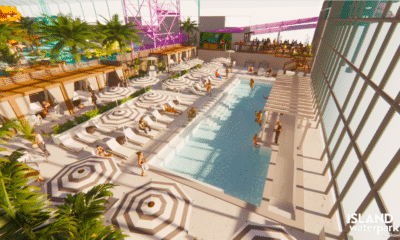
 Family Travel2 months ago
Family Travel2 months agoThings to Do Indoors in New Jersey
-

 Ways to Travel2 months ago
Ways to Travel2 months agoNCT Dream embarks on time-travel adventure in 5th album 'Go Back to the Future' – ABS-CBN
-
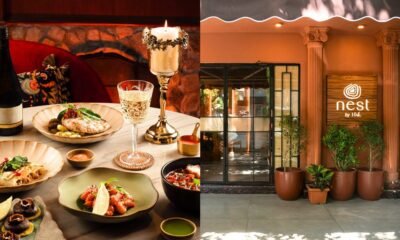
 Restaurants & Food5 months ago
Restaurants & Food5 months ago10 New Restaurants In Delhi NCR To Head To This Month
-

 Brand Stories2 months ago
Brand Stories2 months agoVoice AI Startup ElevenLabs Plans to Add Hubs Around the World
-

 Brand Stories1 month ago
Brand Stories1 month agoContactless Hospitality: Why Remote Management Technology Is Key to Seamless Guest Experiences

You must be logged in to post a comment Login